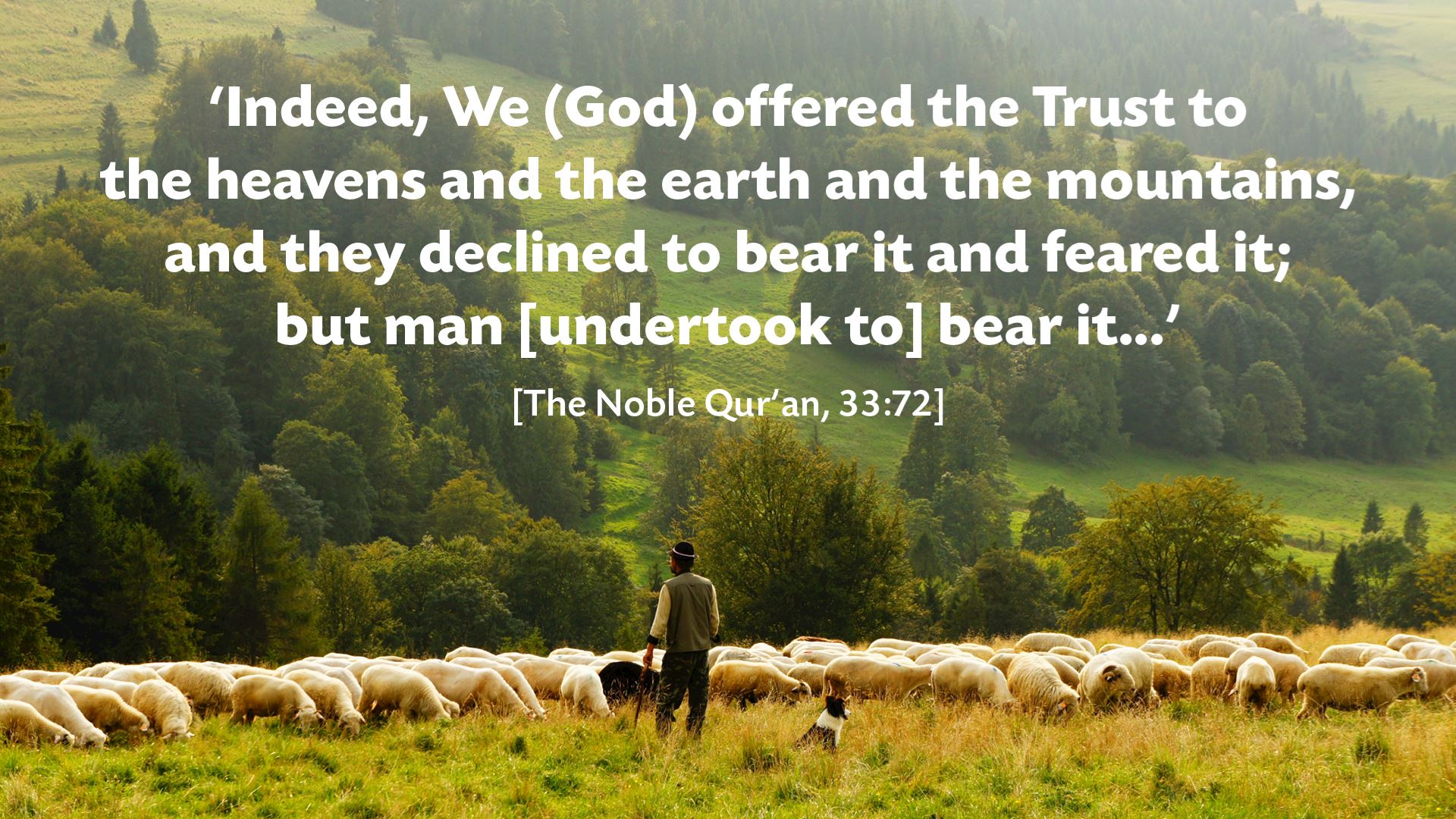Introduction
Environmental protection is a critical concern in the modern world, given the pressing issues of climate change, pollution, and resource depletion. The Quran, as the central religious text of Islam, provides comprehensive guidance on how humanity should interact with the natural world. This exploration of Quranic teachings and Hadiths on environmental protection reveals a deep-rooted emphasis on stewardship, balance, and ethical behavior towards nature.
1. Quranic Teachings on Environmental Stewardship
1.1 The Concept of Stewardship (Khilafah)
The Quran presents humanity as stewards (khalifah) of the Earth, entrusted with its care and preservation. Surah Al-Baqarah (2:30) states:
“And [mention] when your Lord said to the angels, ‘I will create a vicegerent (khalifah) on the earth.’” (Quran 2:30)
This verse underscores the responsibility of human beings to act as caretakers of the environment, ensuring that their actions do not harm but rather benefit the natural world.
1.2 Balance and Harmony in Creation
The Quran emphasizes the concept of balance (mizan) in creation, highlighting the natural order and harmony established by Allah. Surah Ar-Rahman (55:7-8) states:
“And the heaven He raised and imposed the balance. That you not transgress within the balance. And establish weight in justice and do not make deficient the balance.” (Quran 55:7-8)
These verses illustrate that everything in creation is in a state of balance and harmony, and humans are expected to maintain this equilibrium by acting responsibly towards the environment.
1.3 Prohibition of Corruption (Fasad)
The Quran condemns corruption and harm caused to the Earth. Surah Al-Baqarah (2:205) refers to those who spread corruption and destruction:
“And when he goes away, he strives throughout the land to cause destruction therein and destroy crops and animals, and Allah does not like corruption.” (Quran 2:205)
This verse highlights the importance of avoiding actions that lead to environmental degradation and emphasizes that corruption and harm to nature are against divine teachings.
2. Quranic Guidelines on Resource Use and Conservation
2.1 Moderation in Resource Use
The Quran advocates for moderation (wasatiyyah) in the use of resources. Surah Al-A’raf (7:31) advises:
“O children of Adam, take your adornment at every mosque and eat and drink, but be not excessive. Indeed, He likes not those who commit excess.” (Quran 7:31)
This verse encourages the responsible use of resources, avoiding wastefulness and ensuring that consumption practices are balanced and sustainable.
2.2 Sustainable Agriculture and Land Use
Islamic teachings emphasize sustainable agricultural practices and responsible land use. Surah Al-An’am (6:141) mentions:
“He it is Who produces gardens trellised and untrellised, and date palms, and crops of different shape and taste [fruit and flowers], olives, pomegranates, similar [in kind] and different [in taste]. Eat of their fruit when they ripen and give its due [zakat] on the day of its harvest, and waste not by extravagance. Indeed, He likes not Al-Musrifun (those who waste by extravagance).” (Quran 6:141)
The emphasis on avoiding extravagance and ensuring the fair distribution of resources underscores the importance of sustainable agricultural practices.
3. Hadiths on Environmental Protection
3.1 The Prophet’s Teachings on Nature Conservation
The Hadith literature contains numerous sayings of Prophet Muhammad (peace be upon him) that reflect his concern for the environment. For example, the Prophet said:
“If a Muslim plants a tree or sows seeds, and then a bird, or a person, or an animal eats from it, it is regarded as a charitable gift (sadaqah) for him.” (Sahih al-Bukhari 2320)
This Hadith highlights the value of planting and caring for trees, considering it a form of charity and an act of environmental stewardship.
3.2 Water Conservation
The Prophet Muhammad emphasized the importance of conserving water even in abundance. He said:
“Do not waste water, even if you perform your ablution on the banks of an abundantly-flowing river.” (Ibn Majah 425)
This Hadith underscores the principle of not being wasteful with resources, specifically water, which is a critical element for life and the environment.
3.3 Animal Welfare and Rights
The Prophet Muhammad also spoke about the treatment of animals with kindness and compassion. He said:
“Whoever is kind to the creatures of God, he is kind to himself.” (Sahih al-Bukhari 6010)
This Hadith reflects the importance of treating animals well and recognizing their role in the ecosystem, aligning with broader principles of environmental protection.
4. Implementing Quranic and Hadith Principles in Modern Contexts
4.1 Environmental Policies and Practices
Incorporating Quranic and Hadith teachings into environmental policies can guide the development of sustainable practices. This includes promoting conservation, reducing waste, and ensuring equitable resource distribution. Governments and organizations can use these principles to craft policies that align with Islamic teachings and address contemporary environmental challenges.
4.2 Community Initiatives and Education
Community-based initiatives and educational programs can raise awareness about environmental protection from an Islamic perspective. Mosques, schools, and community centers can play a pivotal role in promoting environmental stewardship by incorporating Quranic teachings and Hadiths into their curricula and activities.
4.3 Personal Responsibility and Lifestyle Choices
Individuals can reflect Quranic and Hadith teachings in their daily lives by adopting sustainable practices, such as reducing waste, conserving resources, and engaging in environmental conservation efforts. Personal responsibility aligns with the broader Quranic principle of stewardship and helps contribute to a healthier planet.
Conclusion
The Quranic teachings and Hadiths on environmental protection provide a comprehensive framework for addressing contemporary environmental issues. By emphasizing stewardship, balance, and responsible resource use, Islam offers valuable guidance for promoting sustainability and protecting the natural world. Integrating these teachings into modern practices and policies can help create a more sustainable and harmonious relationship between humanity and the environment.










